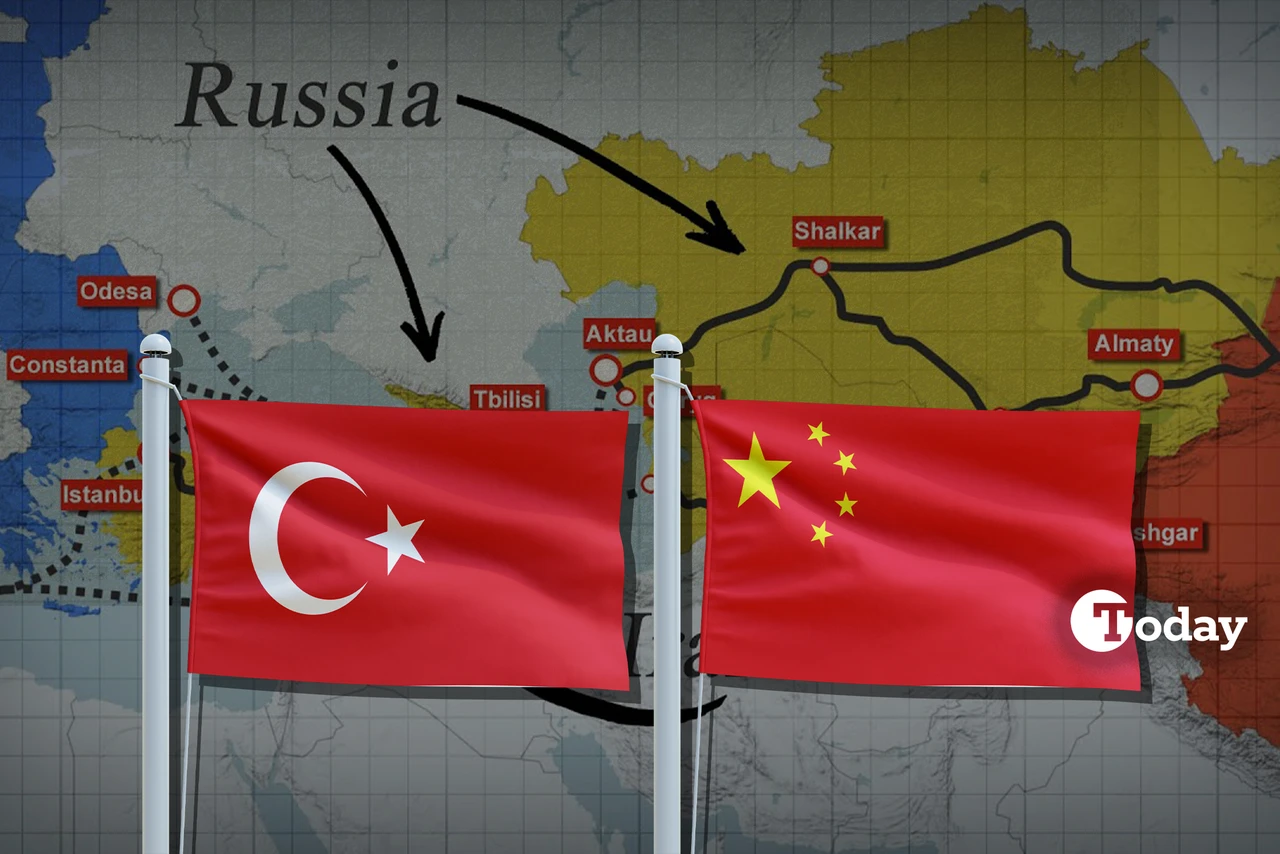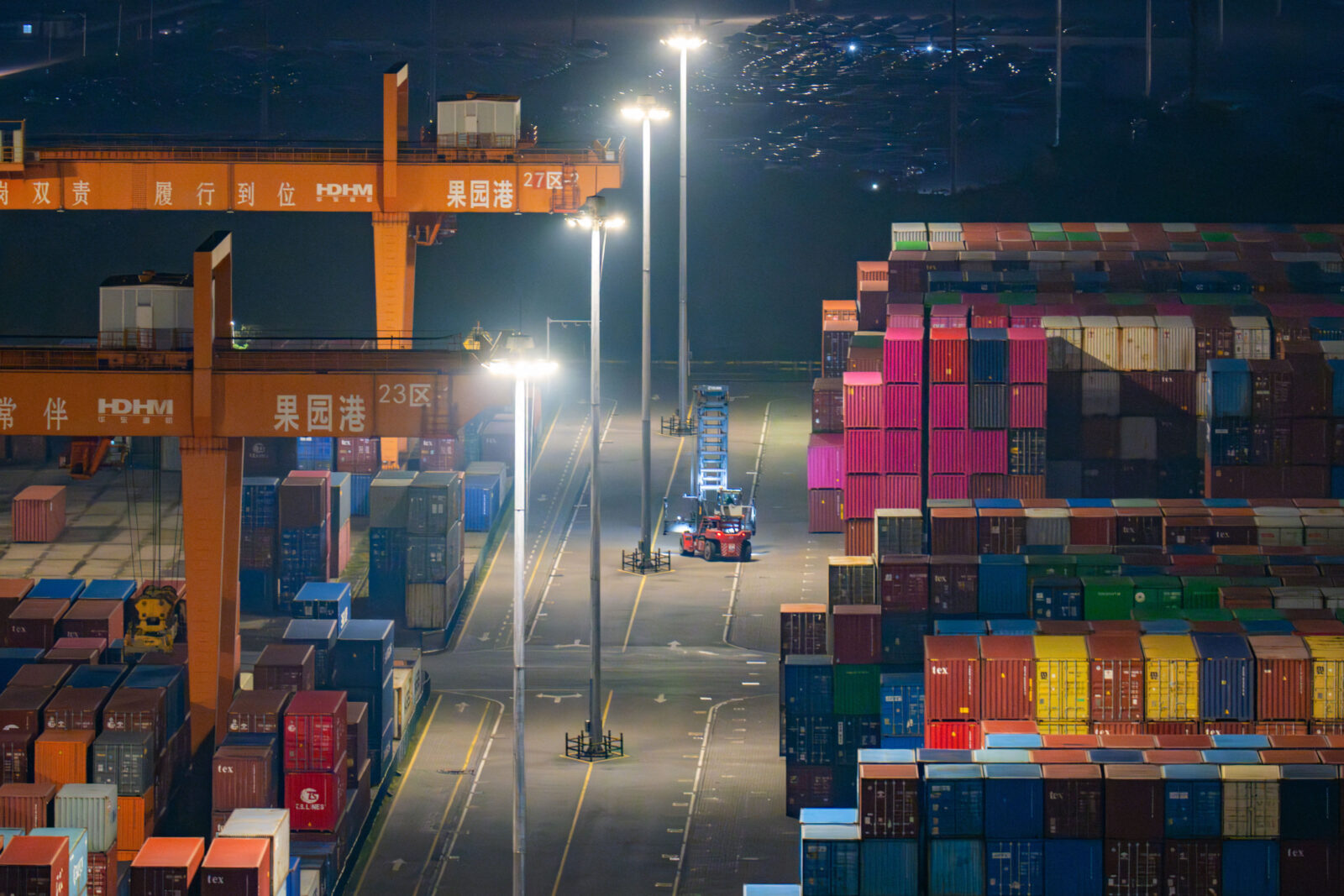Turkish business leader reveals contacts with Chinese firms to bypass Trump tariffs: Report
 Türkiye's $45 billion trade deficit with China highlights a growing economic dependency, prompting calls for export diversification and strategic investments to restore balance. (Collage prepared by Mehmet Akbas)
Türkiye's $45 billion trade deficit with China highlights a growing economic dependency, prompting calls for export diversification and strategic investments to restore balance. (Collage prepared by Mehmet Akbas)
Amid escalating trade tensions between the U.S. and China, Türkiye is emerging as a potential export hub for Chinese goods, as Beijing seeks to preserve its access to global markets in the face of sweeping U.S. tariffs of 145%.
As Chinese companies scramble to find alternative routes to bypass steep tariffs, Turkish firms are also mobilizing. Industry stakeholders have begun consulting with domestic companies and coordinating with their teams in Istanbul, Izmir, and Ankara to assess how Türkiye can best capitalize on its favorable tariff position.
According to the Turkish media, officials indicated that comprehensive reports on U.S.-China trade dynamics have been prepared with support from the Trade Ministry.
These are being used to inform strategic outreach to American companies, with plans underway for Turkish delegations to conduct direct talks in the U.S.
The recent developments have also caused notable concern within the Chinese business community. Despite the Chinese government’s defiant stance, many companies in China are said to be anxious about the implications of the trade dispute.
Speaking to the Turkish news outlet Hurriyet daily, West Mediterranean Exporters Association Chairman Umit Mirza Cavusoglu said that several Chinese companies have reportedly contacted Turkish firms, expressing interest in using Türkiye as a transit route to ship goods to the U.S., effectively seeking to reroute their exports through Turkish territory.

The Turkish industry stakeholders, however, are approaching these overtures with caution. Rather than serving as a pass-through for Chinese goods, Turkish firms are said to be focused on expanding their own production and exploring how much of the global demand they can meet directly.
As the trade dispute intensified, Turkish companies reportedly experienced a surge in inquiries from Chinese exporters seeking to redirect their shipments via Türkiye.
Chinese firms are said to have proposed that Turkish companies receive and forward their products to the U.S. Turkish officials, however, have shown reluctance toward this model.
Türkiye’s favorable tariff status enhances the competitiveness of Turkish exporters, and the primary objective should be capitalizing on this advantage rather than facilitating transshipments from China, Cavusoglu emphasized.
Chinese exporters seek ways to overcome trade barriers
The Trump tariffs, primarily aimed at reducing the U.S. trade deficit by imposing barriers on its largest exporters, led by China.
U.S.-China trade data for 2024 indicates that total goods trade reached approximately $582.4 billion, with imports from China totaling $438.9 billion—a 2.8% increase compared to the previous year, according to the Office of the U.S. Trade Representative.
Recent reports from Radio Free Asia (RFA) indicate severe disruptions in major Chinese export hubs such as Shanghai, Zhejiang, and Guangdong, where cargo shipments to the U.S. have drastically declined.
Factory operations in these regions have largely halted, with warehouses congested by unsold goods. By early April, shipping containers destined for American markets accumulated at ports after missing critical deadlines.

However, recent data announced on Monday showed that Chinese exporters accelerated shipments in March, boosting exports by 12.4% year-on-year to circumvent anticipated U.S. tariffs.
During past U.S.-China trade disputes, Chinese exporters often rerouted shipments via Southeast Asia. However, this strategy has become increasingly challenging, as intermediary countries like Vietnam have also been hit with sweeping tariffs.
Meanwhile, Türkiye, one of the United States’ key trading partners in the Middle East, maintains a balanced trade relationship, with bilateral trade volume nearing $32.5 billion.
In 2024, Türkiye exported goods worth over $16.3 billion to the U.S., while imports from the U.S. totaled $16.2 billion, resulting in a surplus exceeding $100 million.
Consequently, Türkiye remains among the least affected nations by the reciprocal tariffs announced on April 2, positioned in the lowest tariff bracket at 10%.
Beyond its status as a neutral zone amid global trade tensions, Türkiye’s strategic location, logistical strengths, and developed infrastructure connecting markets to Europe further enhance its appeal as an emerging economic hub.



